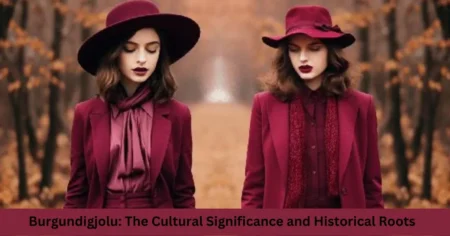Barcelia—though it may not be as widely known as major global cities like Paris, Tokyo, or New York—holds an important and unique position in the world’s geographical, historical, and cultural landscape. This city, rich in heritage and teeming with modern innovation, is a rare example of how ancient traditions and cutting-edge technologies can coexist in harmony. In this article, we will delve into the multifaceted nature of Barcelia, exploring its deep historical roots, vibrant cultural identity, dynamic economy, and its growing role as a center for technological advancements.
A Historical Overview of Barcelia
Origins and Early History
The origins of Barcelia date back to ancient times, with its establishment believed to be connected to early Mediterranean civilizations. While the exact date of its founding remains a subject of debate, it is generally accepted that Barcelia emerged as a thriving trading hub long before the birth of the modern world. The city’s prime location near major trade routes between Europe, Africa, and Asia made it an ideal place for cultural exchanges, allowing different peoples to settle and trade in the area.
Ancient settlers of Barcelia, including the Phoenicians and later the Romans, used the city’s strategic location on the coast to build a flourishing port, which facilitated maritime trade. Over time, the city grew into a cosmopolitan center, attracting merchants and intellectuals from distant regions.
Medieval and Renaissance Growth
During the medieval period, Barcelia found itself under the rule of several powerful empires, each leaving its mark on the city’s development. The Islamic Moors occupied Barcelia for a period, significantly influencing its architecture, sciences, and overall cultural development. After the Christian reconquest in the 12th century, Barcelia became a key player in the Iberian Peninsula’s political and economic sphere.
However, it was during the Renaissance that the city truly blossomed. The period saw the establishment of world-renowned universities, libraries, and centers of intellectual thought. Artists, architects, and philosophers flocked to Barcelia, attracted by the city’s reputation for creativity and scholarship. This era marked the beginning of Barcelia’s cultural golden age, and the effects of this historical period are still visible in the city today.
The Modern Age and Industrialization
In the 19th and 20th centuries, Barcelia, like many cities across Europe, underwent rapid industrialization. The city’s economy diversified beyond trade and agriculture, with the growth of manufacturing, finance, and international business. By the early 20th century, Barcelia had become a major cultural and economic hub, with a growing reputation for art, literature, and innovation.
Barcelia’s Cultural Identity: A Blend of Tradition and Modernity
One of the most remarkable features of Barcelia is its cultural landscape, which blends ancient traditions with contemporary influences. Whether in its art, music, cuisine, or festivals, Barcelia is a city where the old and the new coexist in perfect harmony.
Art and Architecture
Barcelia’s art scene is one of its crowning glories. The city’s architecture spans several centuries, with both Gothic and Renaissance-era buildings coexisting alongside cutting-edge modernist structures. A walk through the city offers a glimpse into its layered history, from the narrow streets of the medieval quarter to the open boulevards lined with modernist buildings designed by famous architects.
One of the most iconic symbols of Barcelia is its series of historic churches and cathedrals. Among these, the Cathedral of Saint Mary stands as a testament to the city’s medieval grandeur, while the Barcelia City Palace showcases the Renaissance style of the late 15th century. In stark contrast, the Barcelia Tower, built in the 21st century, represents the city’s commitment to modern design.
Music and Performing Arts
Barcelia has long been a center for artistic expression, particularly in music and the performing arts. The city boasts a rich musical tradition, with genres ranging from classical symphonies and operas to folk and contemporary music. The city’s orchestras and opera houses are world-renowned, attracting artists and music lovers from all corners of the globe.
In addition to its classical music heritage, Barcelia also embraces modern art forms. The city hosts a number of internationally acclaimed music festivals, including Barcelia International Music Week, which draws top-tier musicians and composers each year. The performing arts scene is equally diverse, with ballet, theater, and contemporary dance performances regularly staged at venues like the Barcelia National Theatre and the Cultural Center of Barcelia.
Cuisine: A Fusion of Mediterranean Flavors
The cuisine of it is as diverse and vibrant as its cultural history. Situated at the crossroads of the Mediterranean, Barcelia’s culinary traditions are influenced by the many cultures that have passed through the region, including Greek, Roman, Moorish, and later Spanish and Italian. The city is known for its rich, flavorful dishes that combine fresh, local ingredients with complex spices and herbs.
Seafood plays a major role in Barcelia’s food culture, with fresh fish, shellfish, and octopus being staples in many local dishes. Paella, originally a Valencian dish, has become a signature meal of Barcelia, often prepared with a variety of seafood, meats, and vegetables. The local markets of Barcelia are a vibrant place to experience the city’s food culture, offering everything from fresh produce to artisan cheeses and cured meats.
Barcelia’s restaurants, ranging from humble street vendors to Michelin-starred fine dining establishments, serve dishes that reflect the city’s dedication to sustainability and local sourcing. The rise of “farm-to-table” dining has made Barcelia a popular destination for food lovers looking to experience fresh, seasonal, and organic fare.
Economic Development and Innovation in Barcelia
As Barcelia enters the 21st century, it continues to be a hub of economic growth, particularly in the fields of technology, innovation, and sustainability. The city’s government has implemented policies that foster entrepreneurship, promote digital transformation, and attract investment in emerging industries.
The Tech Boom: Barcelia as a Hub for Startups
Over the past decade, it has become a major player in the global tech scene. With its growing number of tech startups, research hubs, and accelerators, the city has earned a reputation as one of the top innovation hotspots in Europe. It’s startup ecosystem is particularly strong in areas such as artificial intelligence, blockchain technology, and biotechnology.
Barcelia is home to Barcelia Tech Park, a thriving innovation district that brings together tech companies, entrepreneurs, and investors. Every year, it Innovation Summit attracts global leaders in technology, fostering collaboration and sparking new ideas. The city’s highly educated workforce, coupled with a favorable business environment, makes it an attractive destination for tech talent.
Sustainable Urban Development: Leading the Way in Green Innovation
Barcelia is not only focused on technological advancement but also on promoting sustainability. The city has made significant strides in reducing its environmental impact, with ambitious goals to become carbon-neutral by 2030. Public transportation has been revamped to include electric buses and bike-sharing programs, while solar panels and green roofs are now a common sight on both residential and commercial buildings.
Additionally, it’s GreenTech Hub is dedicated to supporting startups and businesses that focus on renewable energy, sustainable farming, and green technologies. The city’s commitment to sustainability is evident in its growing number of eco-friendly hotels, restaurants, and tourism services that cater to environmentally conscious travelers.
Tourism: A City for All
Tourism is a vital part of Barcelia’s economy, with millions of visitors each year drawn by the city’s rich cultural offerings, historical landmarks, and modern amenities. The city caters to a diverse range of tourists, from history buffs and art lovers to tech enthusiasts and eco-tourists.
Key Attractions and Experiences
Barcelia offers a wide variety of attractions for tourists, including:
- Historical Landmarks: Visit the Barcelia Cathedral, Roman ruins, and medieval Castle it for a glimpse into the city’s storied past.
- Cultural Festivals: The Barcelia Arts Festival and International Music Week are major events for art lovers.
- Nature and Adventure: Explore the surrounding mountains and beaches, or take a guided eco-tour through the city’s parks and nature reserves.
- Tech Tourism: For tech enthusiasts, it Innovation Tour showcases the city’s cutting-edge startups and technological achievements.
FAQs
1. Where is Barcelia located?
Barcelia is located in the southeastern part of Europe, on the coast of the Mediterranean Sea, making it an ideal location for both historical trade and modern innovation.
2. What is the best time to visit Barcelia?
The best time to visit Barcelia is during the spring (April to June) and fall (September to October), when the weather is mild and the city is less crowded.
3. What is Barcelia known for?
Barcelia is known for its rich history, vibrant cultural scene, unique fusion of Mediterranean cuisines, and its emerging role as a hub for technology and sustainable innovation.
4. How can I get around Barcelia?
Barcelia has an excellent public transportation system, including buses, trams, and an underground metro. It’s also very walkable, and bike-sharing programs are widely available.
5. Is Barcelia an eco-friendly city?
Yes, Barcelia is known for its commitment to sustainability, with green building practices, solar energy adoption, and a focus on reducing its carbon footprint.
Conclusion
Barcelia is a city of contrasts—ancient yet modern, traditional yet forward-thinking. With its rich historical heritage, vibrant cultural scene, and growing influence in the fields of technology and sustainability, Barcelia offers something for every visitor. Whether you are drawn to its medieval landmarks, its thriving arts scene, or its innovative tech developments, it stands as a shining example of how cities can evolve while honoring their past. With a bright future ahead, it is a place where history, culture, and innovation continue to intersect, making it a must-visit destination for travelers and a model for cities worldwide.




